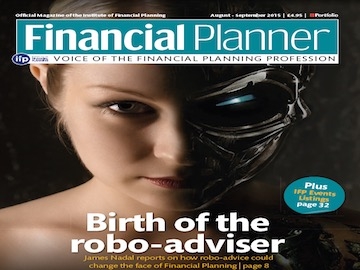
Advisers: We're unsure what robo-advice actually means

Nearly three quarters of advisers remain unsure of what truly constitutes robo-advice, a survey has suggested.
Some 73% who responded to the Aegon UK poll said it was poorly defined, while 52% doubted that it will become mainstream in future.
Steven Cameron, regulatory strategy director at Aegon, said: “Financial advisers say they are unclear what constitutes robo-advice, and as part of the Financial Advice Market Review, we’d like to see the regulator set out very clear definitions in customer language of what constitutes advice as well as guidance and where digital support sits within this.”
Some 63% of advisers said they would trust the outcome of an online questionnaire that examined answers to questions regarding attitude to investment risk and investment goals and then used an algorithm to recommend investment options.
Yet, just 24% of UK consumers said they trust financial advice from digital sources, according to research. This figure fell as people get closer to retirement age and are more likely to seek advice in person. Just 15% of those aged 55 and over said they would trust advice based on an online questionnaire.
Mr Cameron said: “Technology has positively disrupted many business models but when it comes to financial services, there are still a number of challenges to overcome.
“People need reassurance when it comes to major financial decisions and most will welcome having the option of some human support such as a call at the very least to ensure they’ve understood their options. On this basis it’s not surprising many people said they were sceptical about digital advice, and may not be attracted to an online only model.
“Current terminology doesn’t help matters. Robo-advice may have an off-putting dehumanized ring to it, whereas digital apps are a welcome part of today’s world. Customers may be more open if we talk in ‘money app’ terms.”
